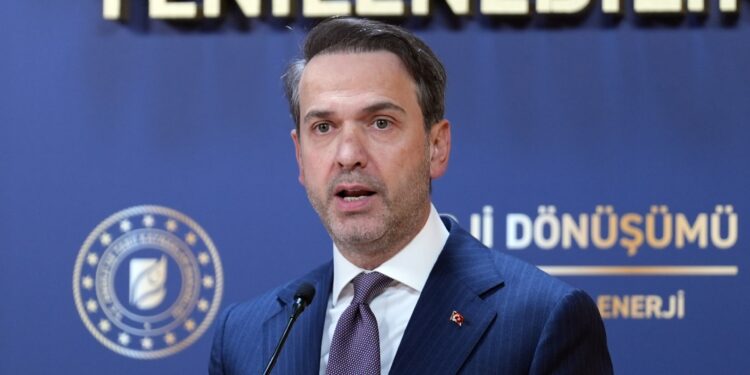Turkish Energy Minister Alp Arslan Bayrakdar said that Türkiye’s daily production of natural gas in the main Screen field in the Black Sea has reached about 9.5 million cubic meters, while the country strengthens its energy ambitions at home and abroad.
Bayrakdar told reporters in the northern region of Geerson that Türkiye aims to complete the agreement next month allows the Turkish government oil Corporation (TPA) and a foreign partner to explore an area in the Black Sea off the neighboring coast of Bulgaria.
He added: “We are about to conclude an agreement related to the Bulgarian economic zone. Most likely, the Turkish Oil Corporation and a foreign company will sign an agreement on a region in the Bulgarian waters.”
According to Reuters, the new Screen field contributed about 6.6% of consumed gas in Türkiye, which amounted to 53 billion cubic meters last year.
International partnerships
Türkiye, which imports more than 90% of its energy needs, is seeking to reduce the import bill and enhance supplies security by developing local resources and expanding international partnerships in the field of oil and gas exploration.
Bayrakdar said that Türkiye is interested in two new maritime fields in the Caspian Sea region, in Azerbaijan and in new fields in northern and southern Iraq.
In Somalia, where Türkiye has recently signed an agreement to explore oil and gas, it is expected that the process of collecting seizures will end by the end of May, with the possibility of deciding to dig at the end of the year.
Bayrakdar said that Türkiye added 3 ground areas to its marine licenses in Somalia, located in the Horn of Africa.
He added that “Somalia’s Senealic Survey will be completed at the end of May. By the end of the year, we will make our decision on drilling.”
The Turkish Oil Corporation has signed agreements with Pakistani companies to provide joint bids to obtain exploration licenses off the coast of Pakistan.
Ankara also seeks to establish partnerships to develop oil and gas fields in Turkmenistan, from which it started importing natural gas in the last period.
Variable mechanisms
In another economic context, Turkish Vice President Jawdat Yilmaz said that his country will manage its economy with changing and advanced mechanisms, instead of using the policies of the “automated pilot” during the period of current commercial wars and the growing global ambiguity.
He added that the biggest risk factor for Turkey due to commercial wars is “the most aggressive measures taken by the countries at risk of loss of the American market, especially China, in other markets.”



